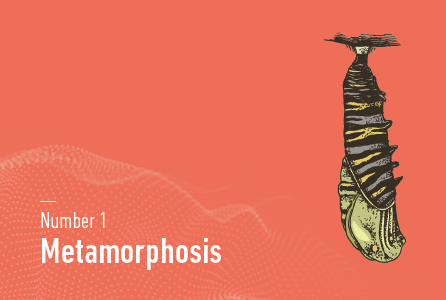The concordance conundrum: the value of improving patient experience
May 28, 2020 |
This is the first in a series of articles where we explore how the current climate presents companies with a multitude of opportunities to improve communication between healthcare organisations and HCPs, and between HCPs and their patients – ultimately leading to improved patient outcomes

For pioneers and prospectors the new healthcare landscape offers a wealth of opportunity to engage more effectively with healthcare professionals.
Number 1: Metamorphosis
COVID-19 has and will continue to change us all. In fact, when it comes to change, we have barely got started – the real shift is yet to come. The global community is in the grip of human and economic loss the like of which we have never seen in peace time, and history tells us that people do not experience losses like this and remain unchanged.
Lockdown signalled an abrupt end to all everyday routines and forced us to adapt overnight to remote working, home-schooling, furlough and redundancy; reduced access to everything from milk to clinical consultations as all efforts were focused on preserving life.
From our current restrictive bubble, it is hard to visualise the future. But like it or not, we’re already locked into a change trajectory and there is no way back.
Survival of the flexible
The challenge is that we don’t like uncertainty and unpredictability – currently we have an abundance of both. The flipside is, we are highly adaptable – the past bears witness to this.
History might not seem relevant in terms of making the technological advances we now need to communicate and share knowledge in our almost exclusively virtual world, but as Adam Grant, Professor of Management and Psychology at the University of Pennsylvania’s Wharton School, says, it does help us learn lessons about our own resilience and apply learnings from past experiences to present challenges.
This flexibility is ultimately what underpins our survival. In an interview with The New York Times, Dr Sam Wessely, a GP practising in London, said we are ‘witnessing 10 years of change in a one week’ – and the figures affirm this. COVID-19 has made us hit fast-forward; many would argue not before time.
The most traditional of industries once reliant upon face-to-face meetings to engage with healthcare professionals (HCPs) has seen a 2,347% increase in online meetings and traffic to its websites rise 49% since January, according to Veeva Systems. Yet only 20% of HCPs believe they can access the information they need to support clinical decision making.
The current crisis has fuelled the speed of change that was already in train. Figures from IQVIA Consumer Health (pre-COVID-19) already illustrated that HCPs are responding positively to remote engagement with overall satisfaction with these projects ranging from 91%-95% (See Figures 1, 2 and 3).

Figures also show that remote engagement has a positive impact on prescribing with 73% of HCPs saying that they are more likely to prescribe an e-detailed product (See Figure 4).

The new frontier
Against the backdrop of the harshest global economic conditions in living memory, these figures show that for pioneers and prospectors this new landscape offers a wealth of opportunity to engage more effectively and efficiently with an audience that is actively seeking new ways of interacting, gathering information and sharing knowledge. No longer are we asking if this is how they want to engage.
But simply perfecting platform use will not be enough. Technology will highlight inadequacies in information and its delivery, not mask them. HCPs are demanding more relevant, more timely information from healthcare companies to support their clinical decision making.
Equally, they are seeking support to help them improve dialogue with patients in this new environment. Ineffective communication with HCPs remains one of the top three reasons cited by patients as having a significant impact on their overall care experience.
The time to harness the opportunities that have arisen is now.
Over the coming months, we will be publishing a series of articles focused on how companies can make the most these opportunities, exploring how communication between healthcare organisations and HCPs, and between HCPs and their patients can be taken to the next level to improve patient outcomes.
Upcoming topics will look at:
- A new role for industry in ensuring greater levels of patient concordance
- Understanding behaviour change: the why not the how
- How the HCP–patient relationship impacts concordance
- Patient experience: the role of active listening and the illness narrative
- Patient empowerment: the role of self-care and shared decision making
- How technology is aiding patient concordance
- How HCP appetite for remote engagement demands that industry embraces technology.
Clare Bates is Content Director at Page & Page. To sign up to receive the next article in the series, please visit the Page&Page Media Lab
This content was provided by Page & Page and Partners




